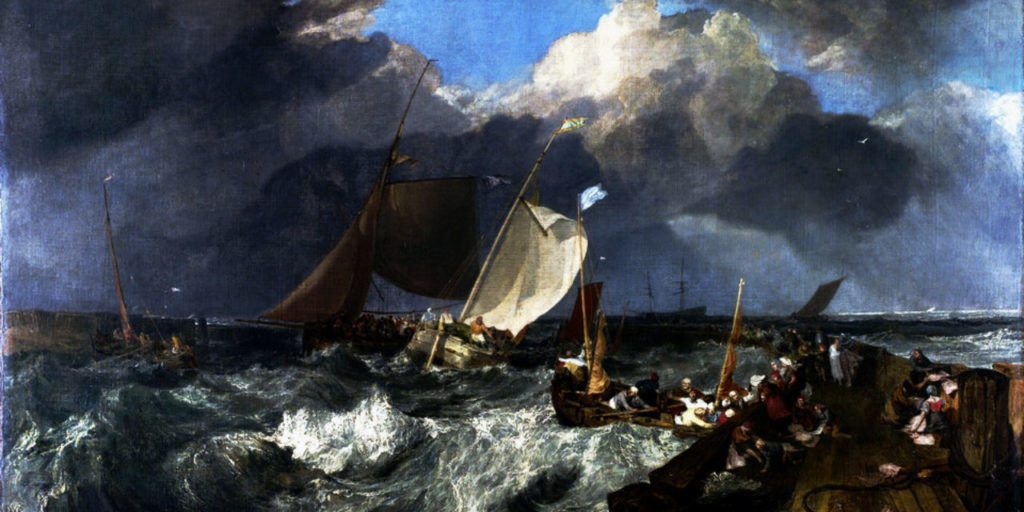
Praying for the Nations in Reformation Europe
How we understand the church’s missionary past has everything to do with how we will proclaim Christ to the nations right now. If the great theologians and practitioners of our ecclesiastical tradition—whoever they are—taught that our Lord had commissioned his church to share the gospel with all people, then we who live downstream of them are likely to embrace that mission. The reverse, of course, is also true.
The Missiological Legacy of the Reformation
One of the stories told about the Reformation in missiological circles is that the reformers weren’t interested in seeing the gospel go to the ends of the earth. Those who make this claim propose a variety of reasons for the failure. Perhaps the Reformers’ horizons were limited to Christian Europe or they were too busy arguing amongst themselves about minute points of doctrine to worry about the millions perishing abroad. Maybe their exegetical method caused them to limit the Great Commission to the apostolic era. Or maybe something inherent in Reformation theology works at cross purposes with global evangelism.
Whatever the rationale alleged, one important source of the claim that Protestants were missionary failures is the founding father of academic missiology, Gustav Warneck (1834-1910), who took the Reformers to task. Warneck concluded that Luther’s “view of the missionary task of the church was essentially defective” and Calvin’s comments on the Great Commission (Mt. 28:18-20) had “not a word to say of a continuous missionary obligation of the church,” but instead used the text as a launching pad for an attack (yet another!) upon the papacy. [1] Even in its second edition, Ruth Tucker’s popular biographical history of missions implicitly follows Warneck’s interpretation of the Reformation, and a recent missiology textbook claims that “the sixteenth-century Protestant Reformation did not produce any missionaries.” [2] The story of a Reformation that wholly ignored mission is being replaced by one in which the “Reformation as a whole was mission” Click To Tweet
To state the obvious, the theological vision of Protestants draws heavily upon the reformers. If Warneck is right that they didn’t have time for missions, will those of us who locate our confessional roots in the Reformation find that they don’t nourish and support an effort to take the gospel to the nations?
Now, in their kinder moments, Warneck and his many followers concede that Luther, Calvin, and their fellows simply couldn’t do everything. They had their hands full with reforming the church and avoiding arrest and execution. To expect them also to have focused their limited energy on reaching the ends of the earth, which admittedly felt much further away in the sixteenth century than they do today, is presumptuous and a bit unfair.
But as more and more scholars reexamine the data, the story of a Reformation that wholly ignored mission is being replaced by one in which the “Reformation as a whole was mission,” to borrow historian Scott Hendrix’s lapidary phrase. [3]
Vermigli and the Psalms: Reformation Meets Great Commission
By way of example, consider Peter Martyr Vermigli (1499-1562), for whom the notion that the Reformers didn’t care about the global spread of the gospel would have come as something of a surprise. In his earlier days, Vermigli was an influential theologian, preacher, and abbot in Roman Catholic Italy. He came to embrace Protestant theology in the 1530s and began a reformation in the northern Italian city of Lucca. In 1542, finding himself too well known, Vermigli evaded arrest and inquisitorial trial by fleeing to the relative safety of the Protestant north. He spent the rest of his life as a trailblazing Reformed theologian and churchman who profoundly impacted three regions of Protestant Europe: the Holy Roman Empire (from Strasbourg), the Swiss Confederacy (from Zurich), and the Kingdom of England (from Oxford).the Psalms have the power to shape the hearts and minds of those who read, pray, and sing them regularly. Click To Tweet
One of Vermigli’s most popular works is his Sacred Prayers from the Psalms of David, which provide a unique window into his theological heart. [4] They’re also a rich devotional supplement for anyone reading through the Psalms in part because they absolutely drip with a global vision for Christ’s kingdom and challenge us to locate our own Christian experience within the larger story of God using his people to build his church around the world. This emphasis is no surprise, for the Psalms have the power to shape the hearts and minds of those who read, pray, and sing them regularly.
Consider this gem drawn out of Psalm 47:
Good Father, grant that our sins may not impede your kingdom. Continue to conquer new people for the faith and make nations, which so far have been without the faith, obey your word. You have chosen for yourself the Church as a choice and special inheritance; may you be greatly glorified in her forever by exquisite melodies and hymns so that all people may possess you, praise you, and sing to you as their king.
Mission mindedness? Check. Global vision? Check. Unreached people groups? Check. But there’s something else here as well. Vermigli’s prayer flows out of his awareness of the church’s own sins and a request that they not undermine the advance of Christ’s kingdom. That’s a humble and self-effacing way to approach cross-cultural evangelism that doesn’t jibe with the stereotypical bad missionary who lugs along a sense of his own superiority while sojourning abroad.
Or consider the prayer for Psalm 67, a psalm that explicitly calls upon all peoples to praise God. Vermigli makes this petition:
Grant, good Father, that we may seek and obtain [the enjoyment of your gracious favor and the illumination of your face upon us]. Be not slow in adding to them a happy yield from the earth. The more generous you are to your dear people, the more you will be feared and the more earnestly honored throughout the whole world.
Did you catch what he did there? Vermigli follows the flow of the psalm in connecting God’s blessing of his people (Ps. 67:1) to the spread of godly fear and reverence among the nations (v. 2). Earlier in this same prayer, Vermigli notes that, as God’s people sin, they find themselves separated from those blessings but, as they repent, God in his mercy “scatters the dark clouds.” Those who sing this psalm are urged to rest content in his providential ordering of “all nations, provinces, and kingdoms,” even during hard times.The nations will worship the one true God when his people experience and bear witness to his blessings. Click To Tweet
Now, it’s fair to say that Reformation-era Protestants weren’t strong on formulating concrete plans for mobilizing global evangelism. But we shouldn’t miss the fact that Vermigli’s prayerful meditations do emphasize the mechanism by which he expects the knowledge of the glory of the Lord to fill the earth as the waters cover the sea (Hab. 2:14). In his prayer for Psalm 67 and repeatedly elsewhere, Vermigli rehearses the same theme: the nations will worship the one true God when his people experience and bear witness to his blessings.
The Church and the Nations
As this suggests, the church plays a central role for Vermigli in bringing the nations to Christ. He identifies the work of God in and for his church—forgiving, delivering, preserving, strengthening, and protecting her—as the lure that draws those outside the church into worship.
In his prayer on Psalm 86, for example, Vermigli describes this type of divine care for the church as a “splendid banner” that, being seen by all people, will provoke general astonishment. As God strengthens and delivers his people by the power of his hand, then the nations will see and know, then the church’s witness to her own enemies and to other nations will be compelling.
Over and over in his prayers, these missional themes rise to the surface. Vermigli calls upon God to bring about the ever-increasing proclamation of his goodness and inexhaustible kindness to all peoples (Ps. 93), the extolling of his name everywhere that all peoples might adore and reverence the divine majesty with pure worship (Ps. 96), the refreshing of the downtrodden so that God’s fairness and justice might shine forth as widely as possible to all people (Ps. 98), and on and on and on. The expansion of Christ’s kingdom to the ends of the earth was emblematic of how God would get the glory. Click To Tweet
If the ultimate goal of these prayers is God’s glory, then Vermigli often fixes the worship of that God in and through Jesus Christ by all nations as the penultimate goal. The expansion of Christ’s kingdom to the ends of the earth was emblematic of how God would get the glory.
So that the Ends of the Earth Might Hear
Vermigli wasn’t really interested in most of what we now call “missions.” I doubt that he had any concrete plan in mind for reaching the ends of the earth. He wasn’t thinking about sending agencies or support raising or the complexities of cross-cultural ministry. In this, at least, Warneck is right: Vermigli’s energy was more focused on the lost who were just outside his door—the millions of people placing their hope in a false gospel—than on converting China or India.
But make no mistake, he earnestly prayed that the Lord of the harvest would bring reform to the church and end its suffering at the hand of its enemies so that the ends of the earth might hear the Gospel preached and turn to Christ in faith.
Most of the folks reading this will have theological roots that draw upon the Reformation, a gospel movement in which Vermigli played a profound (if nowadays largely forgotten) role. If his prayers are any indication, then we don’t need to set global evangelism aside to be good Protestants. But we probably do need to follow Vermigli’s lead by approaching that endeavor with a greater sense of humility, deep repentance, fulsome prayer, and recognition that God’s plan for Christ’s conquest of the nations is a ministry of the church. As we do, it wouldn’t hurt one bit for us to spend more time in the Psalter, being shaped and molded by the songs of that coming King.
Endnotes
[1] Gustav Warneck, Outline of the History of Protestant Missions from the Reformers to the Present Time, translated by Thomas Smith (Edinburgh: James Gemel, 1884), 17.
[2] Tucker, Jerusalem to Irian Jaya: A Biographical History of Missions, 2nd ed. (Grand Rapids, MI: Zondervan, 2004), 20, 97-98 and Timothy C. Tennent, Invitation to World Missions: A Trinitarian Missiology for the Twenty-First Century (Grand Rapids, MI: Kregel, 2010), 248.
[3] Hendrix, Recultivating the Vineyard of the Lord: The Reformation Agendas of Christianization (Louisville, KY: Westminster John Knox, 2004), 86.
[4] The prayers were first published posthumously in 1564 and were frequently republished in Latin and other languages. I quote from the modern translation: Sacred Prayers from the Psalms of David, translated by John Patrick Donnelly (Kirksville, MO: Sixteenth Century Essays and Studies, 1996).

